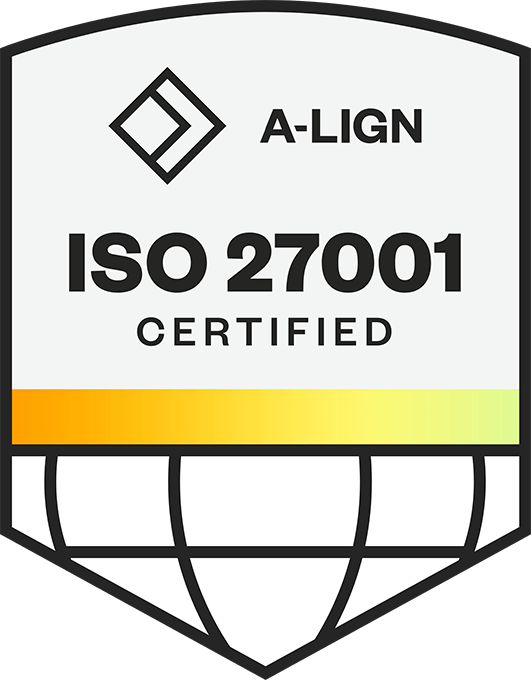The global regtech market is growing exponentially, powered by significant regulatory changes such as MiFID II, PSD2 and GDPR, which all brought with them extensive new obligations for financial services firms. Currently valued at $2.3bn, the regtech market is expected to reach $7.2bn by 2023, coupled with a predicted 500% increase in investment in the sector by 2020, from $10bn in 2017 to more than $53bn at the end of the decade.
RegTech encompasses the vast number of tech solutions to firms’ regulatory obligations, and addresses regulatory reporting, compliance checks, risk management, identity management, transaction monitoring and more, ultimately helping firms to operate for efficiently and competitively.
2018 was a huge year for the industry, with the introduction of the aforementioned MiFID II, PSD2 and GDPR, all of which have had a transformative effect on how firms operate. But the evolution of regtech is far from over, and the potential impact it could have is only beginning to be understood.
In this Compare the Cloud article, Matt Smith, CEO of SteelEye, outlines his predictions for regtech in 2019 – and beyond.
Regulators will wake up to the value of Regtech
So far, regulators have done little to support regtech and there has been minimal if any, collaboration among regulators to help boost regtech’s impact across different industries and regulations.
But I predict this is going to change, and regulators will start becoming more proactive in encouraging innovation and collaborating on regtech solutions. Unlike most industries, financial services have no governing body responsible for setting a collaborative regtech agenda, so implementation efforts across different regulations have not so far been aligned.
But in 2017, the International Regtech Association (IRTA) was launched, with the aim of promoting standards, certification, innovation and collaboration in the sector. This was supported by a recent report promoting the adoption of regtech by regulators to streamline their own internal processes, which the FCA has already begun by exploring how technology can make it more efficient and relieve the burden on firms.
As the industry becomes more established, it’s likely that in 2019 this enthusiasm will be taken further as regulators continue to see the value of regtech and encourage its adoption and consolidation across industries.
Investment in the sector will rise
While regtech has had a very strong start in terms of investment, it is still a fairly new industry and therefore investment is only likely to increase in 2019 and beyond.
Until recently, financial firms were relying on old, legacy systems that were inefficient and extremely costly. Regtech has begun providing an alternative, with scalable solutions that have helped revolutionise firms’ compliance processes – often taking 15 minute compliance processes down to a mere three. It’s likely, then, that firms who have been ‘turned on’ to the ways of regtech will continue looking for more game-changing answers to their compliance problems.
By 2020, it’s estimated that there will be 300 million pages of regulations, and fines for non-compliance will rise accordingly. New directives yet to be implemented, such as the Fundamental Review of the Trading Book (FRTB) and the Central Securities Depositories Regulation (CSDR) will further increase firms’ obligations and necessitate more regtech to help meet these demands.
With the road ahead uncertain and firms’ obligations increasing, regtech’s job looks set to get much bigger. In the first half of 2018 alone there was an investment of $1.37bn – more than for all of 2017. It’s only right, then, that investment into new and exciting regtech solutions, or the expansion of existing brands, will increase in 2019.
Regtech will move beyond regulation
Regtech obviously has a major role to play in helping firms with their compliance obligations. But its benefits go far beyond streamlining long and tedious regulatory processes, and in the year ahead I predict that regtech will move far beyond being used simply for regulation.
Today, firms generate data through almost all of their processes, and new data visualization tools and cloud software have only taken this further. With such vast amounts of data being created, technologies such as AI and machine learning are enabling companies to gain insights into regulatory practices and reporting, and carry out meaningful inspections of critical compliance risk areas.
Companies are increasingly using regtech to deal with this data, not only to help with compliance, as discussed above, but to gain business insights and get an edge over their competitors – by gaining a better understanding of their customers, trying out new products or improving their operative processes. Regulations such as Market Abuse Directive/Market Abuse Regulations (MAD/MAR) for example, have ramped up compliance requirements for trade and communications surveillance. This has meant firms now have vast amounts of scattered, disparate data. Recently, however, as firms have woken up to the value of regtech, we have seen a trend towards firms leveraging all this data on their trades. By deploying regtechs analytics, surveillance data has helped firms drive better decisions on risk capital allocation; or highlight where traders achieve poor risk-adjusted returns. Ultimately, giving firms the insights to gain a competitive edge, drive efficiencies and enhance their processes.
I expect, then, that big data and innovation in regtech tools will allow providers in 2019 to make products that are more commercially exciting, and have a broader range of uses.
An exciting year ahead
It’s set to be an exciting year in 2019 for regtech, with more investment, regulator involvement and even more advanced products. As firms continue to realise how much value these new technologies can bring, regtech could have a truly transformative effect on the financial sector, helping firms not only to better manage their compliance obligations but perform more competitively and innovate faster.

.jpg)








